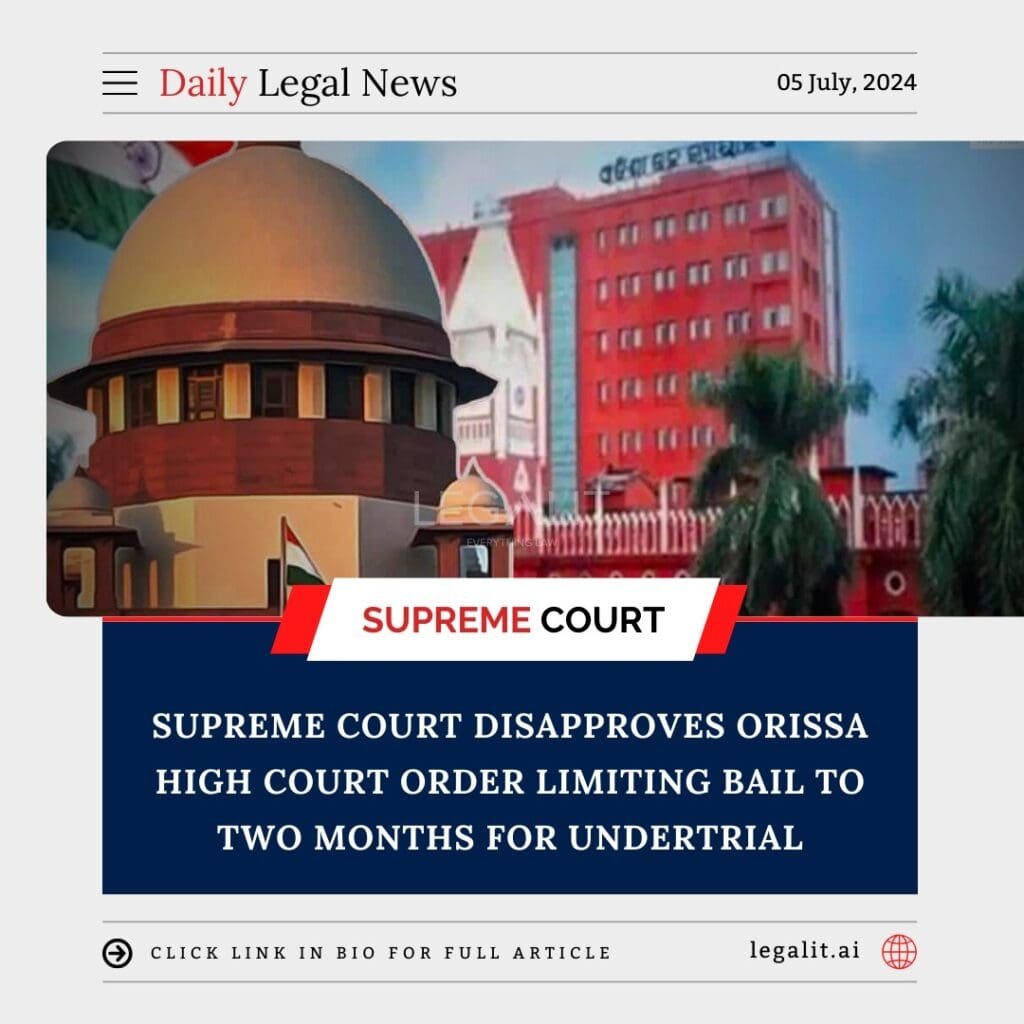
The Supreme Court has recently disapproved of an Orissa High Court order that limited the bail period of an undertrial prisoner to just two months. The case involved Ranjit Digal, who had been in custody since May 2022. The Orissa High Court had granted him interim bail for three months, but this decision was challenged at the Supreme Court.
Key Points from the Supreme Court’s Decision:
- Unrestricted Bail Period:
- The Supreme Court ruled that once bail is granted, it should not be limited to a specific period unless there are compelling reasons to do so. The Court emphasized that imposing such a restriction without substantial justification infringes on the accused’s rights and does not align with legal principles governing bail.
- Criticism of the High Court’s Approach:
- The Supreme Court criticized the Orissa High Court’s approach, stating that it was inappropriate to limit the bail period. The Court observed that the High Court should have considered the long duration of the undertrial’s detention and the lack of compelling reasons to restrict bail to a short period.
- Directive for Continuous Bail:
- The Supreme Court ordered that the interim bail granted by the Orissa High Court should continue until the trial’s conclusion, ensuring that the accused does not have to face repeated detention periods without just cause.
This ruling reinforces the principle that bail, once granted, should not be subject to arbitrary time limitations unless exceptional circumstances exist. The Supreme Court’s decision aims to uphold the rights of undertrial prisoners and prevent undue hardships caused by restrictive bail conditions.